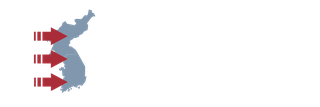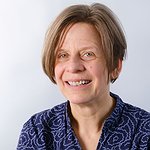Reconfigurations of the Order of Knowledge through Contact with "Western Learning" in Korea's Early Modern Period

To avoid the restricted perspective that the western derived concept of religion is apt to create, this project will attempt to embed the history of Korean discourses on Christianity in the more comprehensive framework of changing episteme. The period to be examined begins with the first contacts with Jesuits in Beijing in the 17th century and ends with the establishment of a Western model of education that had been implemented mostly by Protestants in the decades before the colonization of Korea (1910). It is heuristically divided into three phases. Concerning the first phase of mainly intellectual discourse on "Western Learning" (from the early interactions up until the late 18th century), we will focus particularly on encyclopedic writings as structured representations of the available knowledge of the past, in order to more readily understand in which contexts and through which concepts the Choson literati perceived and classified the learning from the West. This will also help to identify less evident strands of Korean tradition that were directly or indirectly affected by the contact with "Western Learning". Based on such a definition of the fields of contacts, in the second phase (the period from the final years of the 18th century until the late 19th century marked by Korean self-proselityzation as well as by state persecution of Catholic believers), we will continue to examine pertinent texts of the literati in general, but will additionally focus on identifiable "religious" circles, i.e. the Buddhist community which seems to have gained some strength during the period, orthodox Confucian scholars, and the Tonghak movement which emerged as a direct response to the Christian doctrine in Korea. This work will be based mainly on materials from Collected Works and historiography. For the last phase, which sets in with the country opening for a vibrant, culturally extremely significant, mainly Protestant mission (from the 1880s onward), our interest will be focused on questions on how the change in lead media for cultural transfer and epistemic change (newspapers, journals, and textbooks) relates to the influx and adaptations of new concepts like "religion" itself. For all three periods, we wish to find out about - migration of meme and types of argumentation, and their adaptation - concepts and conceptual history, particularly with regard to the concepts of "doctrine" and "religion", "destiny" and "providence", "god/deity", "soul", "person" - the way in which doctrinal contents, social arrangements and types of activity are demarcated, obliterated or rearranged in the course of "religious" interactions In addition, questions pertaining to the sociology of knowledge (such as the background and group interests of the protagonists of epistemic change and religious interactions, functions of social networks in the course of religion transfer, etc.) will also be taken into account.
The main aims of the project are: - to describe the inculturation of contents of Christian beliefs and Western knowledge in Korea, within a far-ranging historical framework and avoiding segmentation of epistemes into fields of "religion", "philosophy/ethics", and "(proto-)science" - to contribute to the history and typology of contacts between religions - to reconsider the social and medial conditions and effects of epistemic change (including belief systems) - to contribute to the history of the adaptation of the Western concept of religion in non-European societies - to attempt to help generate a non-Eurocentric historiography of religion that transcends the conceptual limitations
Affiliated Persons


